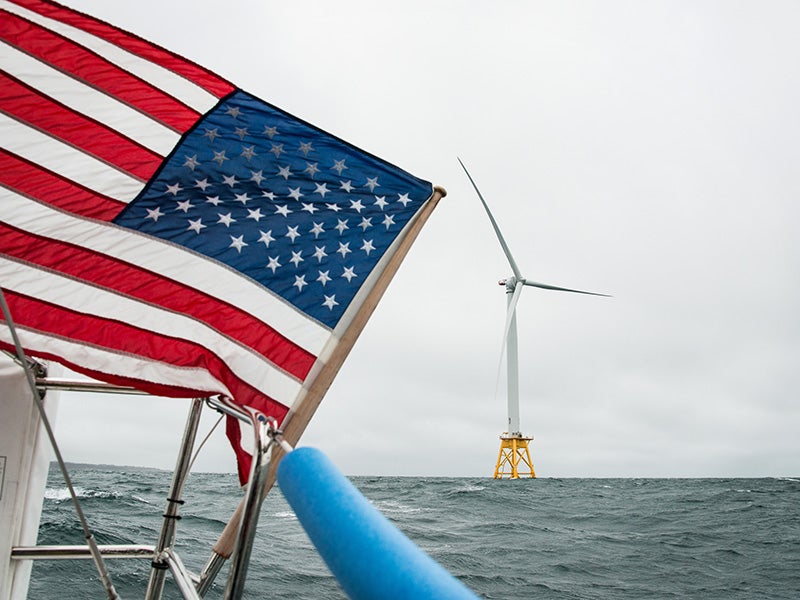New Oceans Bill Offers One Plan for Two Crises
This might seem obvious, but our planet is mostly ocean. So we can’t talk about a sustainable future and environmental justice without also talking about ocean protection.
What are often less obvious are the links between ocean ecosystems and human rights. Threats such as polluted runoff, rising sea-levels, and habitat destruction are having severe impacts on public health, food systems, and the overall standard of living for people who live in coastal communities.
Today, we need climate solutions that conserve our most valuable ecosystems while also securing justice for all people, and ocean protection is a major opportunity to address both of these crises. The Ocean-Based Climate Solutions Act (OCSA) is Congress’s biggest step yet in this direction. Here’s what the OCSA does that everyone can get behind:
Resilient Coasts and Communities
Residents of coastal communities have been stewards of the oceans they live near and have relied upon for generations. Their communities are also on the frontline of climate change, experiencing first-hand the destruction of rising seas, intensifying storms, and collapsing ecosystems.
The OCSA would invest $3 billion in our coasts to support:
- Shovel-ready restoration projects, with emphasis on disaster-prone low-income communities, communities of color, tribal territories, and rural communities;
- Job creation for people who have lost their jobs as a result of COVID-19;
- Living shorelines, oyster reef restoration, and other coastal infrastructure improvements to mitigate the impacts of climate disasters; and
- Community vulnerability assessments, which underscore that the wellbeing of human and natural environments are not at odds, but rather are interdependent.
Clean Waters
Industrial pollution is flowing at increasing rates through vulnerable communities and into our oceans. Chemicals from sewage and agriculture are contributing to rising CO2 levels, and excess nitrogen and phosphorus are leading to more frequent harmful algal blooms (“HABs”) that send oxygen levels plummeting. This mismatch of supply and demand creates literal “dead zones” that wipe out the marine life within them and even threaten life on land with bacteria and algae that are carcinogenic to humans. These interactions have also been devastating to coastal fishermen and their local economies.
The OCSA would confront these deadly phenomena by:
- Enhancing federal research and coordination;
- Making HABs eligible for disaster relief under the Stafford Act</a>; and
- Ordering an action plan for HAB reduction in South Florida.
The bill also reauthorizes the Federal Ocean Acidification Research and Monitoring Act to conduct reports on ocean acidification, another effect of climate change that exacerbates algal outbreaks. The action plan would identify knowledge gaps and ways we can adapt that would also allow us to better address the root causes of climate change.
Robust Carbon Uptake
The OCSA recognizes the ocean as an essential tool to combat climate change. It calls for meaningful action to protect and restore blue carbon ecosystems, such as mangrove forests, tidal marshes, and seagrass meadows. These powerful ecosystems absorb carbon dioxide from of the atmosphere and safely store it at a rate of up to four times that of forests on land, preventing acidification and warming of our oceans. They also protect communities from coastal erosion, flooding, and storms — all while providing habitat for marine wildlife and fisheries. Unfortunately, these ecosystems are disappearing due to development and climate change.
The OCSA would invest in a program that:
- Helps us understand and manage blue carbon ecosystems;
- Promotes public-private partnerships to restore and enhance them; and
- Measures the carbon storage effects of proposed projects to more accurately assess the costs and benefits of these actions.
Reduce Greenhouse Gas Emissions
In order to overcome these dangerous climate conditions, we need a just and equitable transition away from fossil fuels. The vast majority of offshore oil and gas production takes place in the Gulf of Mexico, where communities and wildlife live with the toxic burden of offshore oil spills and polluting infrastructure like platforms and pipelines.
The OCSA would reduce the risk by:
- Prohibiting new oil and gas leasing on all areas of the Outer Continental Shelf; and
- Advancing clean energy by setting ambitious targets for offshore wind energy production.
The right note to end, and begin, on
The OCSA would be our nation’s first effort to address the impacts of climate change on our oceans. Through ocean-based solutions, this bill would also begin to tackle long-standing environmental injustices. Imagine what would be possible if we took this comprehensive approach to all of our climate policies — an end to the climate crisis could finally one day be within our reach. But the bill requires that lawmakers be as willing to honor people’s human rights as they would embrace the goal of a clean and safe environment. This is the bold, transformative thinking we need to meet the challenges ahead.
Earthjustice celebrates this legislative precedent and will be working with Congress to turn these ideas into law.
The Florida regional office wields the power of the law to protect our waterways and biodiversity, promote a just and reliable transition to clean energy, and defend communities disproportionately burdened by pollution.
Earthjustice Media Relations Team
media@earthjustice.org
